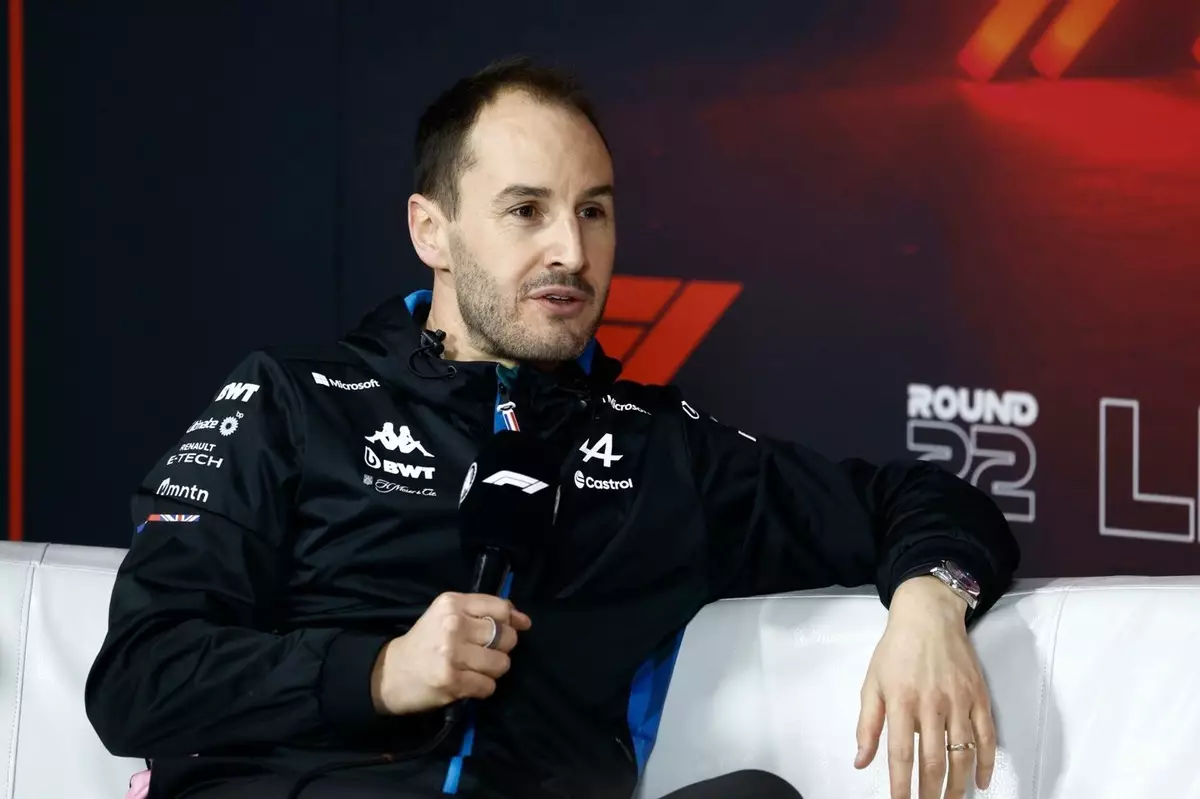In a rapidly evolving Formula 1 landscape, teams are constantly challenged to adapt and innovate in order to stay competitive. The Alpine Formula 1 team has recently seen a notable resurgence in performance during the latter half of the 2024 season, prompting team principal Oliver Oakes to reflect on the changes implemented under his guidance and that of advisor Flavio Briatore. As competition intensifies and expectations rise, the steps taken to streamline operations and enhance the team’s efficiency have proven to be not just practical, but essential.
Early obstacles in the 2024 season forced Alpine to confront stark realities within its organization. With a previous headcount exceeding 1,100 employees, the decision to reduce staff to approximately 900 was not made lightly. Oakes recognized the necessity of a leaner operational structure, indicating that efficient resource allocation is paramount in an era defined by budget caps in F1. “In a budget cap world, you’ve got to make sure you’re putting resources in the right area,” he stated, highlighting the fundamental shift towards prioritizing core competencies, particularly in race car development.
This restructuring was accompanied by the ceasing of Alpine’s independent power unit program and a focus on collaborating with Mercedes for customer engines. This pivot not only aligns with financial prudence but also maximizes technological input from established players, allowing the team to concentrate on its primary mission: crafting a competitive racing vehicle.
The revitalization of Alpine’s fortunes has also been attributed to the expertise of technical director David Sanchez, whose leadership has catalyzed a significant upturn in performance. Oakes emphasized the culture shift within the organization: “Everything is about making a better car and going racing.” This streamlined philosophy reflects a concerted effort to intertwine the engineering prowess of the team with an unwavering focus on race day performance.
The reduced headcount, coupled with strategic investments in infrastructure such as a new simulator and upgraded dyno facilities, has allowed Alpine to hone its engineering capabilities. Oakes pointed out that such investments demonstrate the commitment of the wider Renault group to support Alpine’s objectives. The need for updated equipment is a vital component for enhancing the overall performance metrics of a racing team in today’s competitive environment.
Alpine’s Enstone facility boasts a rich history in Formula 1, serving as a breeding ground for innovation and success. Oakes acknowledges the historical significance of the site, noting its longstanding contribution to the sport. However, he is also keenly aware of the need for continuous evolution. “Enstone has been there a long time; the walls have got more history in F1 than most factories,” he remarked, establishing a balance between honoring the past and embracing the future. It is this dual focus that positions the team to pursue progress within the tightly contested midfield, where every minor improvement can translate into major competitive advantages.
Though Oakes refrained from providing a concrete timeline for Alpine’s return to frontrunner status, he expressed confidence in the caliber of the personnel currently on the team. This belief reflects a broader understanding that, in Formula 1, human capital—ingenuity, expertise, and morale—remains the most critical lever for success.
As Alpine charts its path forward, Oakes’s insights underscore a commitment not only to enhancing vehicle performance but also to refining the team’s overall operational dynamics. The balancing act of managing resources while pursuing excellence is one that many teams grapple with, yet Alpine’s recent improvements suggest that they have found an effective formula for success.
With the investment strategy in place and the right team members onboard, Alpine is setting up for future success while ensuring that its foundational changes will solidify the team’s sustainability in the highly competitive world of Formula 1. As the 2024 season continues, the organizational shifts and commitment to innovation could well be the turning point that reestablishes Alpine as a formidable force on the racing circuit. In a sport where every second counts, the nuances of operational efficiency may prove as vital as the advancements in vehicular technology.


Leave a Reply